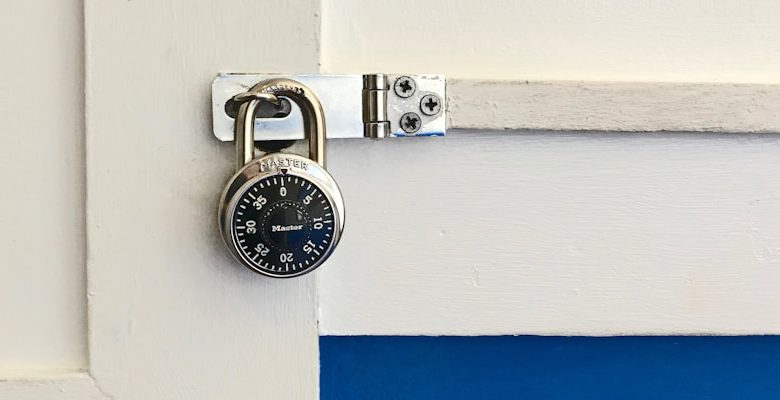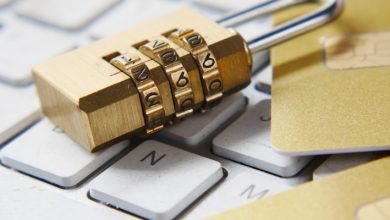How to Secure Your Private Keys: Best Practices

- Understanding the Importance of Private Keys
- Best Practices for Generating Strong Private Keys
- Secure Storage Methods for Private Keys
- Utilizing Hardware Wallets for Enhanced Security
- Backup Strategies to Prevent Loss of Private Keys
- Protecting Your Private Keys from Phishing Attacks
Understanding the Importance of Private Keys
Private keys are essential components in ensuring the security of your digital assets. They act as a unique identifier that grants access to your cryptocurrencies, tokens, or other sensitive information stored in a blockchain network. Understanding the importance of private keys is crucial to safeguarding your investments and personal data from unauthorized access and potential theft.
Private keys are generated using complex cryptographic algorithms that create a one-of-a-kind code for each user. This code is mathematically linked to a public address, which is used to receive funds or transactions. It is important to keep your private key secure and confidential, as anyone who gains access to it can control your assets and conduct transactions on your behalf.
Losing your private key means losing access to your digital assets permanently. There is no way to recover a lost or stolen private key, so it is crucial to store it in a safe and secure location. Many crypto wallet providers offer backup options such as mnemonic phrases or hardware wallets to ensure that you can regain access to your funds in case of emergencies.
Remember that private keys should never be shared with anyone, including trusted individuals or services. Be cautious of phishing attempts, fraudulent websites, and malware that may attempt to steal your private key. By taking proactive measures to protect your private keys, you can minimize the risk of unauthorized access and maintain the security of your digital assets.
Best Practices for Generating Strong Private Keys
When it comes to securing your private keys, generating strong private keys is crucial. Here are some best practices to follow:
- Use a high-quality random number generator to create your private keys. This will help ensure that your keys are truly unique and secure.
- Make sure your private keys are long enough. The longer the key, the harder it is for hackers to crack it.
- Avoid using easily guessable information, such as your name or birthdate, when generating your private keys.
- Consider using a passphrase in addition to your private key for an extra layer of security.
- Regularly update your private keys to protect against potential vulnerabilities.
By following these best practices, you can help protect your private keys and safeguard your sensitive information from unauthorized access.
Secure Storage Methods for Private Keys
When it comes to securing private keys, utilizing secure storage methods is crucial to protect sensitive information from unauthorized access. There are several best practices for storing private keys securely:
- Hardware Wallets: One of the most secure storage methods for private keys is using hardware wallets. These physical devices store private keys offline, making them less vulnerable to cyber attacks.
- Paper Wallets: Another secure storage method is creating a paper wallet, where the private key is printed on a physical piece of paper and stored in a secure location. This method is offline and less susceptible to hacking.
- Encrypted USB Drives: Storing private keys on encrypted USB drives adds an extra layer of security. These drives can be locked with a password, protecting the private keys from unauthorized access.
- Secure Cloud Storage: For those who prefer digital storage, using secure cloud storage services with end-to-end encryption can be an option. However, it is essential to choose a reputable provider with a strong security track record.
By implementing these secure storage methods, individuals can better protect their private keys and reduce the risk of unauthorized access to sensitive information. It is essential to choose a storage method that aligns with one’s security needs and preferences to ensure the safety of private keys.
Utilizing Hardware Wallets for Enhanced Security
For those looking to enhance the security of their private keys, utilizing hardware wallets is a highly recommended practice. Hardware wallets are physical devices that store private keys offline, making them less vulnerable to hacking or unauthorized access compared to software wallets. By keeping private keys offline, hardware wallets provide an extra layer of protection against cyber threats.
When using a hardware wallet, private keys are generated and stored securely within the device itself. This means that even if a computer or mobile device is compromised, the private keys remain safe and cannot be accessed by hackers. Hardware wallets typically require a PIN or password to access the stored private keys, adding an additional level of security.
Additionally, hardware wallets are designed to be tamper-proof, making it extremely difficult for malicious actors to tamper with the device and steal private keys. Some hardware wallets also come with additional security features such as built-in encryption or two-factor authentication, further enhancing the security of private keys.
Overall, utilizing hardware wallets is a highly effective way to secure private keys and protect digital assets from unauthorized access. While hardware wallets may come at an additional cost compared to software wallets, the enhanced security they provide makes them a worthwhile investment for anyone serious about safeguarding their private keys.
Backup Strategies to Prevent Loss of Private Keys
It is crucial to have backup strategies in place to prevent the potential loss of private keys. Losing private keys can result in the permanent loss of access to encrypted data or digital assets. To avoid such a scenario, consider implementing the following backup measures:
- Regularly backup your private keys on external storage devices such as USB drives or hardware wallets. Keep these backups in secure locations away from potential threats.
- Utilize encrypted cloud storage services to store copies of your private keys. Ensure that the cloud storage provider offers robust security features to protect your sensitive information.
- Create multiple backups of your private keys and store them in different physical locations. This redundancy can help mitigate the risk of losing access to your private keys due to unforeseen circumstances.
- Consider using a secure backup service specifically designed for storing private keys. These services often offer additional security measures such as multi-factor authentication and encryption.
- Regularly test your backup strategies to ensure that you can successfully recover your private keys if needed. Make any necessary adjustments to improve the effectiveness of your backup process.
Protecting Your Private Keys from Phishing Attacks
Protecting your private keys from phishing attacks is crucial to maintaining the security of your digital assets. Phishing attacks are a common method used by cybercriminals to steal sensitive information, including private keys. To prevent falling victim to phishing attacks, it is important to follow best practices and be vigilant when it comes to protecting your private keys.
One way to protect your private keys from phishing attacks is to never share them with anyone. Your private keys should be kept confidential and only used for authorized transactions. Be cautious of any emails or messages requesting your private keys, as legitimate organizations will never ask for this information.
Another important step in protecting your private keys is to use a secure and reputable wallet for storing your digital assets. Choose a wallet that offers strong encryption and multi-factor authentication to prevent unauthorized access to your private keys. Additionally, regularly update your wallet software to ensure you have the latest security features.
When accessing your wallet or entering your private keys online, be sure to verify the authenticity of the website or platform you are using. Look for secure connections (https://) and check for any suspicious signs of phishing, such as misspelled URLs or unfamiliar email addresses. It is always better to err on the side of caution and double-check before entering any sensitive information.
By following these best practices and staying vigilant against phishing attacks, you can help protect your private keys and safeguard your digital assets from unauthorized access. Remember, your private keys are the key to your digital kingdom – keep them safe and secure at all times.



